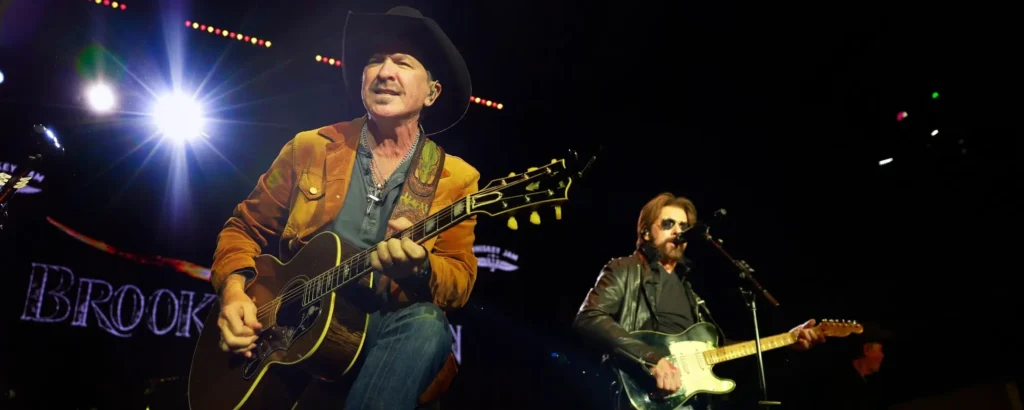
The quiet resilience of a woman’s heartbreak, told through dusty boots and silent tears.
When Brooks & Dunn released “Cowgirls Don’t Cry” in 2008 as the final single from their compilation album Cowboy Town, they delivered more than just a radio-ready country tune—they offered a poignant meditation on strength shaped by sorrow. The song climbed to No. 2 on the Billboard Hot Country Songs chart, bolstered in part by a moving performance at the Country Music Association Awards featuring country icon Reba McEntire, whose duet version breathed additional gravitas into an already emotionally potent track. For an act already crowned as the most awarded duo in country music history, this ballad served as both a fitting coda and a testament to their ability to marry commercial success with deeply human storytelling.
At its core, “Cowgirls Don’t Cry” unfolds as a generational elegy—a story passed from father to daughter, each verse another chapter in a life shaped by early lessons in stoicism and grit. The lyrics trace the arc of a woman’s life from childhood innocence to adult grief, anchored by her father’s repeated refrain: “Cowgirls don’t cry.” Each time those words return, they echo with greater complexity—not merely as an encouragement to be strong, but as a tacit acknowledgment of the emotional labor women often bear in silence.
From the first verse—where a young girl is thrown from her pony and urged back into the saddle—to the final moments by her dying father’s bedside, the song charts an emotional topography that feels intimately familiar to anyone who has ever masked vulnerability beneath composure. There is no melodrama here, only the aching truth of what isn’t said. “She told him she loved him and goodbye,” Ronnie Dunn sings with aching restraint, letting the silence between those words convey what even language cannot.
Musically, the song honors its narrative with understated grace. A mournful fiddle line weaves through the arrangement like dust over prairie grass, while Dunn’s weathered vocals are complemented perfectly by McEntire’s harmony—her voice rising like wind off an open plain. The production resists grandiosity; it knows that real pain doesn’t need embellishment. This is country music at its most elemental: clear-eyed, compassionate, and unafraid to stand in quiet witness to life’s hardest truths.
More than just a tale of loss or endurance, “Cowgirls Don’t Cry” speaks to how identity is forged not merely through triumphs but through the resolve it takes to keep going when one’s heart is breaking. In a genre often celebrated for its rugged masculinity, this song turns its gaze toward feminine strength—not loud or showy, but steady as hoofbeats on dry earth. And in doing so, Brooks & Dunn, with Reba by their side, gave us one of their most enduring contributions: an ode to every woman who has ever wiped away tears with calloused hands and kept riding forward.